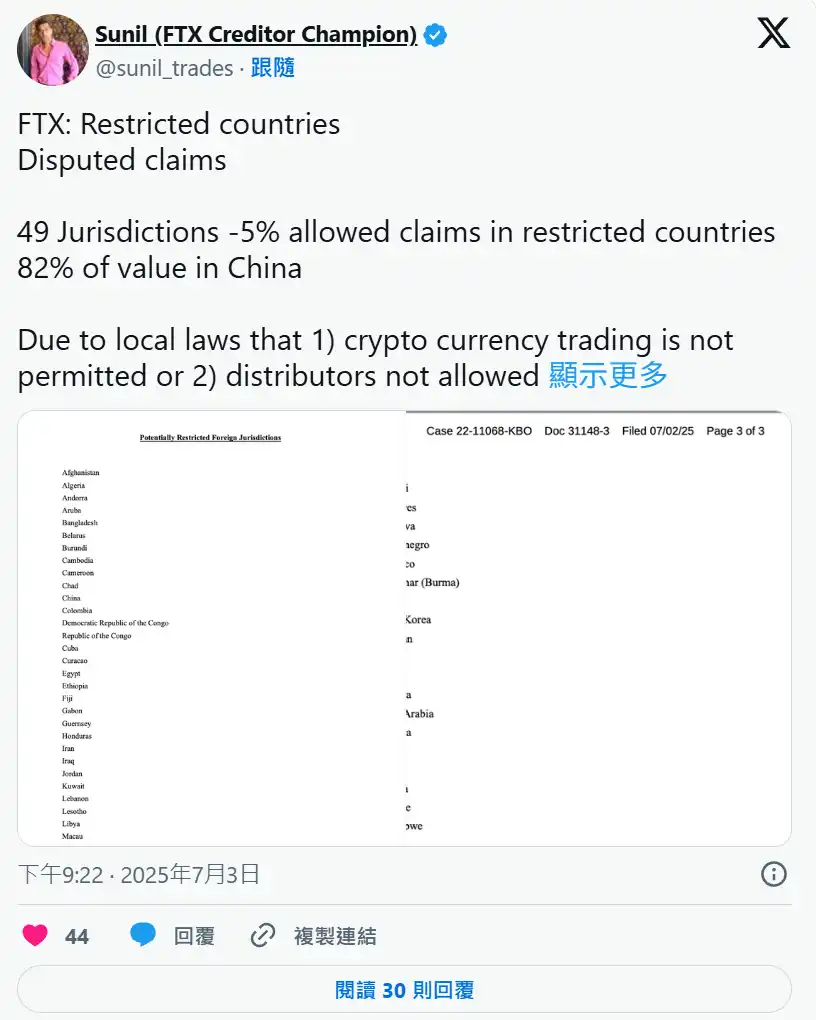原文标题:《FTX债权代表人Sunil:中国用户恐怕拿不回钱!受限国家里占绝大部分》
原文作者:Mickey 帽鼠,动区动趋 BlockTempo
破产交易所 FTX 清算再起波澜。债权人代表 Sunli 在 4 日推文透露,49 个受限制司法管辖区的投资人,可能因当地法规被排除在赔付名单外,其中主要债权价值来自中国。

受限制国家面临失权
Sunli 表示:
在49个司法管辖区中,有5%的债权属于「受限国家」所提出的债权,而其中高达82%的债权价值来自中国。
原因在于当地法律规定:
1.不允许加密货币交易
2.不允许境内有加密分销商存在。
因此,FTX 的处理步骤如下:
1.FTX 将取得法律意见;
2.若法律意见认为可以对「潜在受限外国司法管辖区」进行分配,FTX 将执行;
3.若认定某申索人为「受限外国司法管辖区」居民:
a.该债权将被列为「争议债权」;
b.FTX 将提出正式异议;
c.若该争议未解决,债权人将丧失其分配权益。
换而言之,FTX 清算委员会正寻求法律意见,决定是否向受限制地区分配款项。若答案是否定,相关索赔将被列为争议并可能作废,当地用户也拿不回钱。
受影响金额虽仅占已批准索赔的 5%,却有 82% 集中在中国。中国尚未完全开放民间加密货币活动,加上资金分发受限,成为最大变数。
3AC 天价索赔牵动回收率
债务表另一个焦点是三箭资本 (3AC) 提出的 15.3 亿美元索赔。FTX 指控 3AC 透过高风险交易自陷危机,认为金额严重夸大。若法庭最终认可,其他投资人可追回比例恐减少约两成。目前整体争议索赔已超过 22 亿美元,为清算增添复杂度。
免责声明:本文章仅代表作者个人观点,不代表本平台的立场和观点。本文章仅供信息分享,不构成对任何人的任何投资建议。用户与作者之间的任何争议,与本平台无关。如网页中刊载的文章或图片涉及侵权,请提供相关的权利证明和身份证明发送邮件到support@aicoin.com,本平台相关工作人员将会进行核查。



